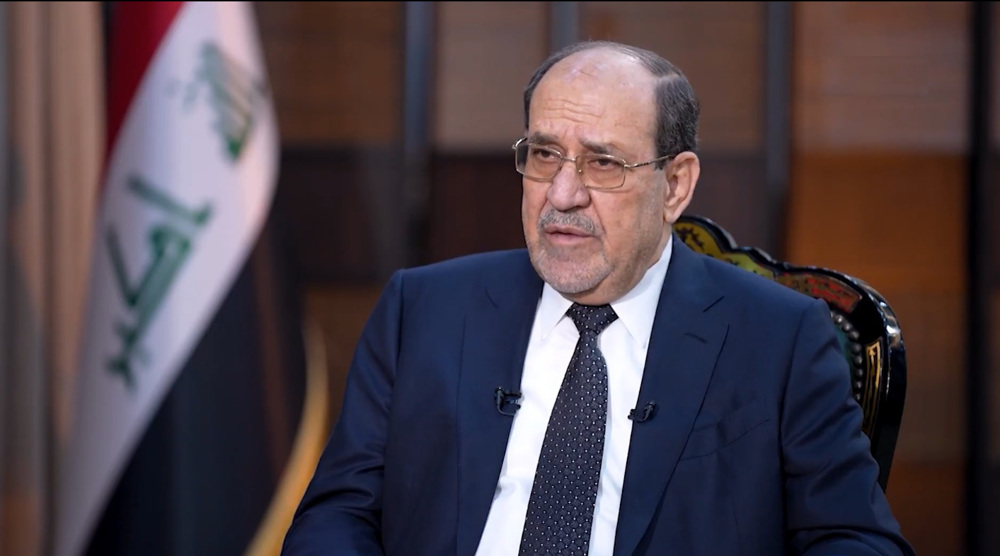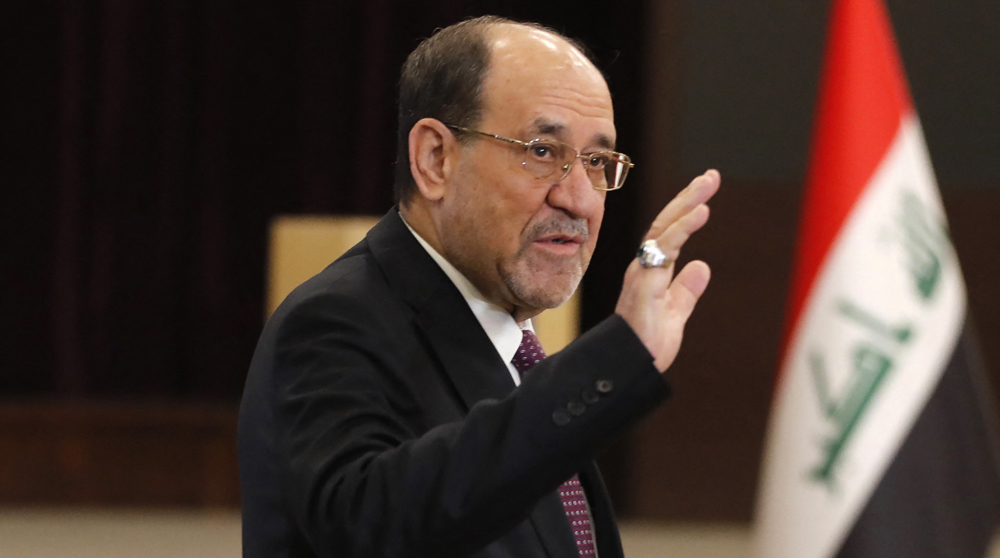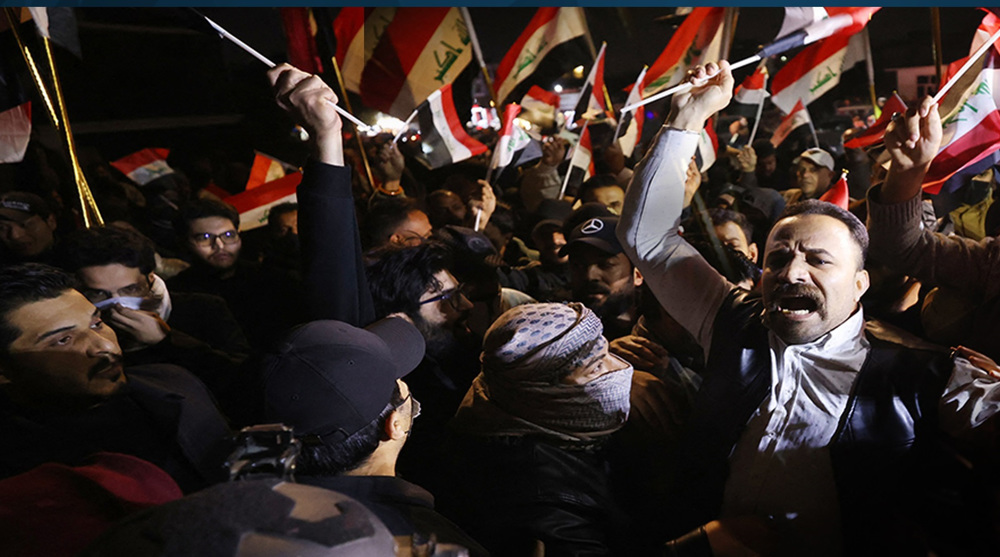Iraqi parliament speaker cancels session over security reasons
Iraqi Parliament Speaker Salim al-Jabouri has cancelled a planned session aimed at discussing anti-graft reforms due to security concerns.
The Saturday session was not held because “parliament couldn't be secured” by the security forces, Iraqi state TV cited a statement from the office of al-Jabouri.
The parliamentary session was canceled as lawmakers challenge the legitimacy of the speaker to chair the meeting in an escalation of a political crisis crippling state institutions.
The MPs were to vote on whether or not Jabouri should remain in power.
Meanwhile, a group of Iraqi parliamentarians earlier announced their withdrawal from a Saturday session to nominate a replacement for the speaker.
Iraqi lawmaker Qasim al-Araji said Saturday that 23 parliamentarians from Badr bloc were withdrawing from the session, apparently leaving it without the necessary quorum.
He warned that the current political rift in the parliament could result in two governments and undermine the fight against Daesh Takfiri terrorist group, which controls swathes of land in the northern and western parts of the country since 2014.
“We were living with two parliaments, and that could lead to two governments,” Araji said, adding that it could result in “the collapse of the front” against Daesh.
“We are against dividing the parliament and we want to maintain the democratic political process in Iraq,” he said.
The Iraqi parliament has witnessed a tumultuous week amid a political rift which has thrice prevented a vote on a list of new ministers proposed by Prime Minister Haider al-Abadi.
The Iraqi parliament gave Abadi a three-day deadline, which started on March 28, to present a new list of ministers or face a vote of no-confidence.
Abadi met the deadline, but the legislature has so far delayed voting on the cabinet reshuffle amid stiff resistance from some parties seeking to maintain their influence in the administration.
Most of those on Abadi’s list were later substituted with new names on a second list distributed among lawmakers on April 12, triggering a storm and prompting some lawmakers to launch at a sit-in at the floor.
On April 13, a fistfight erupted in the parliament hall, forcing the prime minister to say he would make changes to the disputed names on the new list.

On Thursday, the parliament cancelled a vote on the cabinet overhaul and voted to unseat Jabouri and his deputies. Lawmakers also appointed Adnan al-Janabi, a senior tribal leader, as the acting head of the parliament.
Jabouri dismissed the session as unconstitutional because he and the premier were not present and the vote had failed to reach the required quorum.
However, Jabouri’s opponents insisted that the vote to dismiss him was legitimate and planned to hold their own session on Saturday to select replacements for Jabouri and his two deputies.
Abadi on Thursday urged lawmakers to exercise self-restraint, and warned that a political crisis engulfing the country could hamper the war against Daesh militants.
“The conflict has crippled parliament ... and could obstruct the work of the government, impacting the heroic operations to free our cities and villages (from Daesh),” Abadi said.
FM Araghchi departs Muscat for Doha following nuclear talks with US
Israeli keeps killing more Palestinian civilians in Gaza amid relentless ceasefire violations
Aliyev: Azerbaijani territory will not be used for threats against Iran
Turkey arrests two on charges of spying for Israeli regime
Iran FM declares ‘good start’ as US–Iran talks conclude in Muscat
Iran strongly condemns 'terrorist' mosque blast in Islamabad
Iran enters talks backed by national power, popular support: MP
France, UK involved in assassination of Muammar Gaddafi's son: Reports















 This makes it easy to access the Press TV website
This makes it easy to access the Press TV website